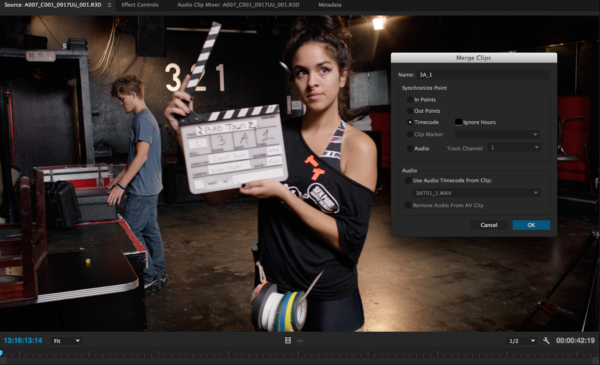During the production cycle students may, depending on availability and the parameters of the production cycle, order “special request” equipment for their productions. Special request equipment is defined as any piece of equipment in the ER that is not listed on the preset equipment packages.
Special equipment typically requires additional training and it can add complexity to the production protocols and procedures. For this reason, special equipment is only permitted on the more advanced-level projects (F3, BTH, M2, MC), where there is adequate time and attention for ensuring it is deployed effectively. Earlier projects (F1, F2, M1) are restricted to using the standard equipment package, where the intended focus of the curriculum is on core, foundational learning.
Protocol for Requesting Special Equipment
This type of equipment usage is covered by the Special Equipment Check-Out Form and requires the authorization of a specific faculty/staff member and the Associate Dean. The student will need to go online and fill out the required Special Equipment Request form and submit it to the ER personnel. The ER will then inform the student of the check-in/check-out procedures and location of the equipment. The equipment will be the responsibility of the student(s) who checked it out, whether an individual or a group.
In order to receive special equipment, the show’s producer and/or director of photography must do two things:
- Attend a special equipment meeting with the ER Manager. This meeting is not a substitute for the green light meeting or directors prep. It is designed to sort out logistical problems and chart the equipment at any given moment during production. This is meeting is MANDATORY if you want access to any special equipment. At the meeting a time will be set wherein the students must check the special equipment out and in. Special equipment checkout/in occurs separate from regular checkout/in. Meeting times will be posted on the board and through general email notifications.
- The student will complete and sign a Special Equipment Request Form. Producers must sign this form to obtain the gear, and are responsible for its proper use and care.
This equipment needs to be returned immediately upon completion of the project or by the return date. Failure to do so will result in restriction of ER privileges.
Generators
Please note that generators are not considered special equipment, but are reserved for the use of the MFA program students. In very extreme cases, a BFA production has been granted the use of the generators. A BFA student wishing to use a generator on his/her production must follow the below procedures:
- The producer must present a letter written by the cinematography teacher supervising the production, stating that s/he has attended the location scout and has deemed the generator critical for the completion of the project. It must be impossible to shoot the film otherwise. The producer must find a faculty-approved MFA student who has been trained on the generator, and who has been approved and hired as a truck driver, who is willing and able to function as the generator operator. This person must drive the generator to and from set, and remain on set whenever the generator is in use. This person will be the only person who can drive the generator truck, operate the generator, and manage power distribution on the set. This person will work with the BBE but will have final approval over the proper use and safety of electrical distribution. The producer must have a signed deal memo from the MFA student indicating the above, and the dates and times the student will be required to work.
- The producer must take all documentation to the Head of Production no fewer than three full days prior to the start of the shoot for approval and signature. The completed and signed Special Equipment Form must be presented to the ER at check out, and the MFA student must be present to inspect and check out the generator truck.

